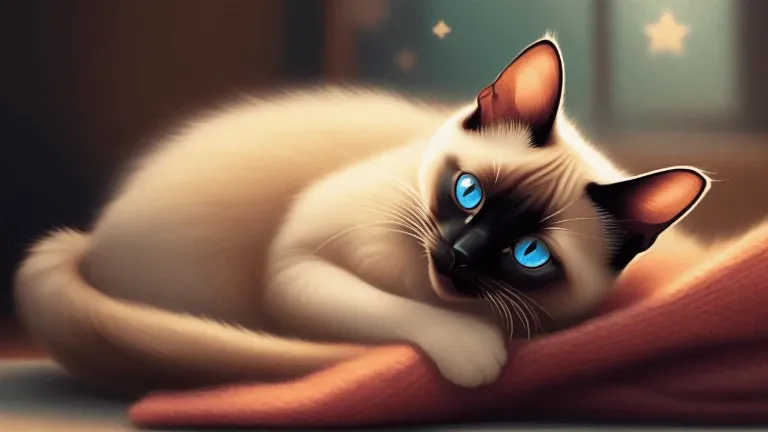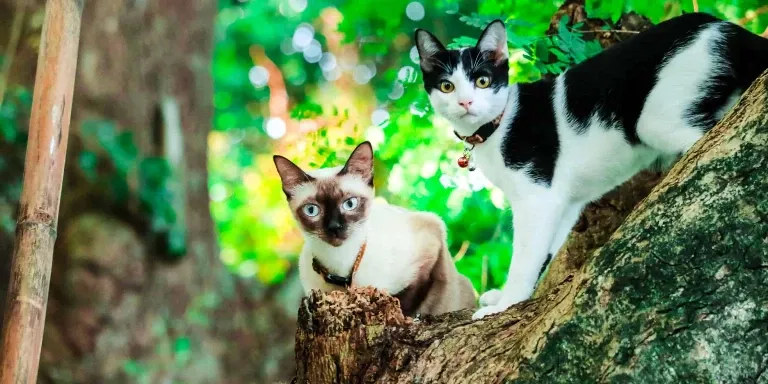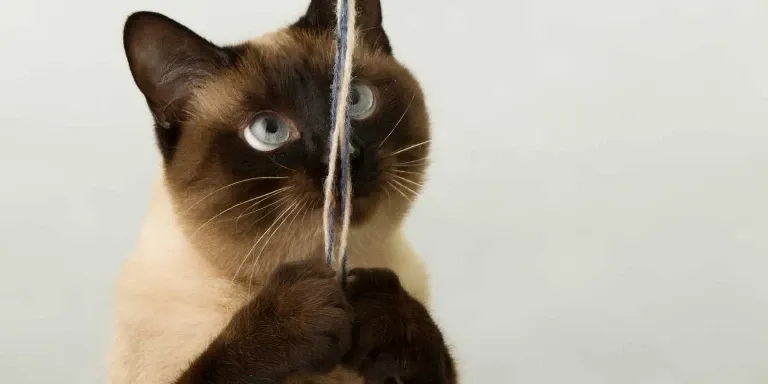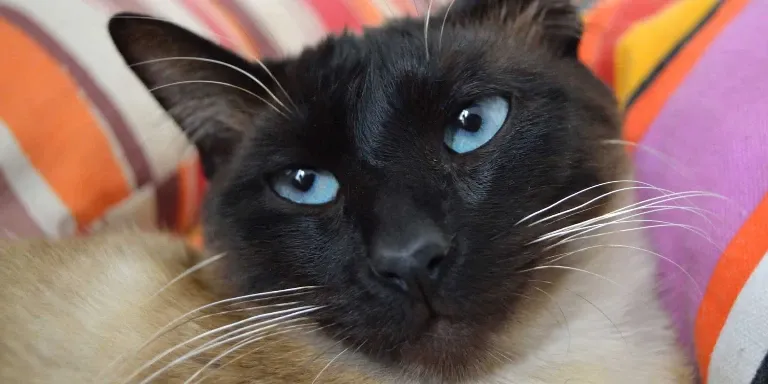The Best Fluffy Pancakes recipe you will fall in love with. Full of tips and tricks to help you make the best pancakes.
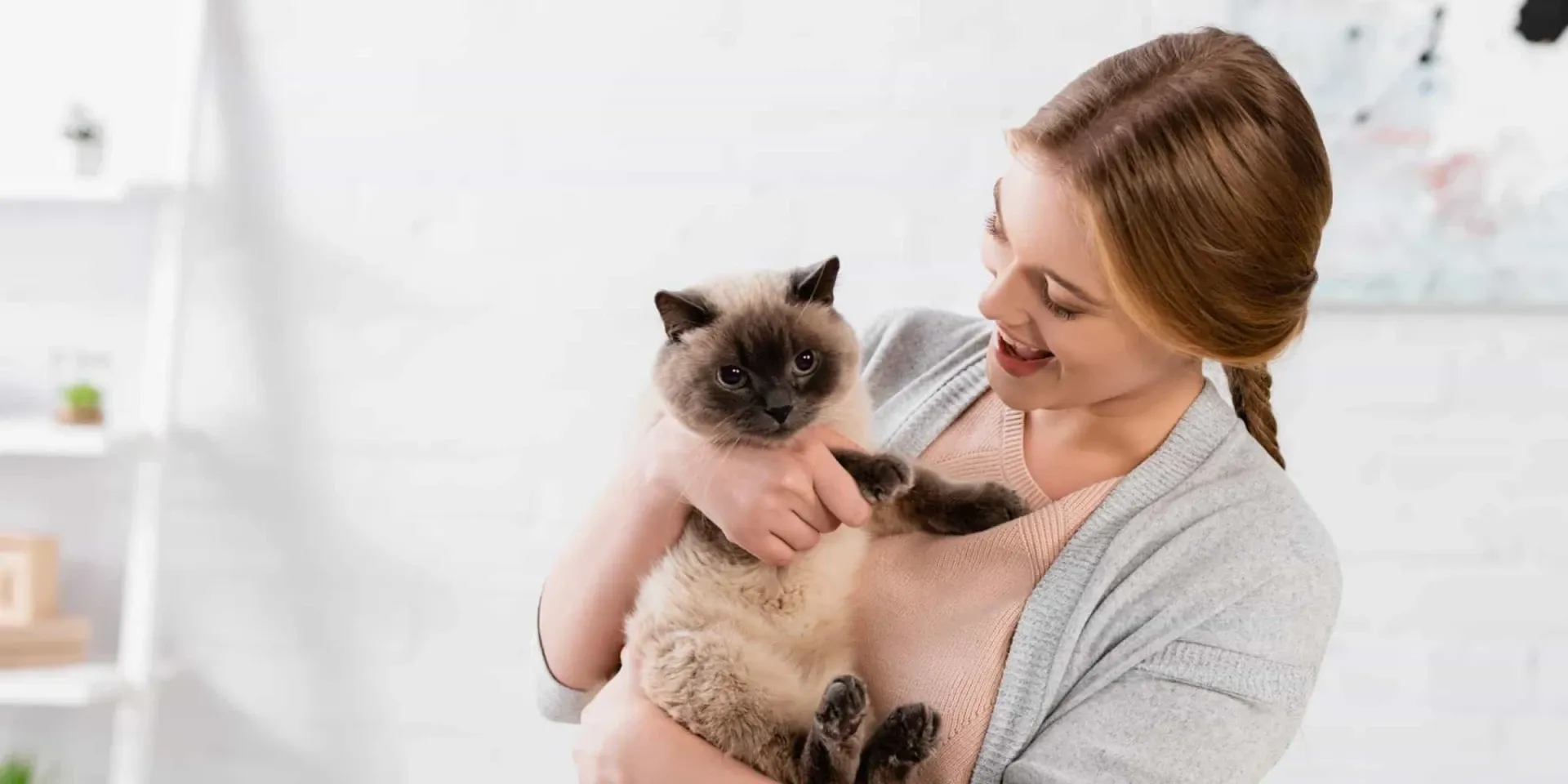
Do you ever feel like your Siamese cat is constantly attached to your hip? It’s not uncommon for Siamese cats to exhibit clingy behavior, and you may be wondering why this is the case.
Siamese cats are known to be clingy and affectionate due to their natural personality traits. They are highly social and crave attention from their owners, often following them around and wanting to be involved in their daily activities. They are also known to form strong bonds with their owners, making them very loyal and attached pets.
In this article, we’ll explore the history and genetics behind their personality, as well as the importance of early socialization and the influence of their environment.
Siamese cats have a rich history dating back to ancient Siam (now Thailand), where they were highly revered and even considered sacred. Their unique appearance, with their distinctive pointed ears and striking blue eyes, is a result of their genetic makeup.
But it’s not just their physical traits that make them stand out – their personality traits are equally noteworthy. Siamese cats are known for their intelligence, vocalizations, and of course, their clinginess.
So, why exactly are Siamese cats so clingy? Let’s dive in and find out.
The History and Origins of Siamese Cats
You might be surprised to learn that Siamese cats have a long and fascinating history, dating back to ancient Siam where they were revered as sacred creatures by royalty and monks alike.
While the exact origins of the Siamese cat are unknown, it is believed that they were bred by ancient Siam’s ruling class to be companions and protectors of the royal family. These cats were considered so important that only members of the royal family were allowed to own them.
As trade routes opened up, the Siamese cat’s popularity spread throughout the world. In the 1800s, the British Ambassador to Siam was gifted a pair of Siamese cats by the King of Siam. These cats were brought back to England, where they quickly became popular with cat fanciers.
The breed was officially recognized by cat associations in the late 19th century and remains one of the most popular cat breeds today.
The ancient Siamese cat’s migration patterns and spread throughout the world are a testament to their popularity and unique characteristics. These cats are known for their intelligence, loyalty, and playful personalities. Their clingy behavior may be a result of their history as companions to royalty and monks, as they were bred to be close to their owners.
Their history is just the beginning of understanding why Siamese cats are so clingy.
The Genetics Behind Their Personality
If you’re wondering what makes these feline companions so attached to their owners, it could be due to a genetic predisposition towards affectionate behavior. Personality traits inheritance plays a crucial role in determining a cat’s behavior, and Siamese cats are no exception.
Siamese cat breed genetics, in particular, have been found to influence their clingy behavior. A study conducted on Siamese cats found that they have a gene variant that is associated with increased sociability and affectionate behavior towards humans. This gene variant is responsible for the production of oxytocin, a hormone that is known to promote feelings of love and attachment. This hormone plays a crucial role in the bonding process between cats and their owners.
Furthermore, Siamese cats have been found to display signs of separation anxiety when left alone, which is another indication of their clingy behavior. This behavior is linked to a specific gene variant that predisposes them to develop separation anxiety. Siamese cats have a strong need for companionship, and they often seek out human interaction to alleviate their anxiety and loneliness.
Understanding the genetics behind their personality can help owners provide the necessary care and attention to keep their Siamese cats happy and healthy.
The Importance of Early Socialization
By socializing your new Siamese cat early on, you can help them develop positive behaviors and become a well-adjusted pet that brings joy and companionship to your life.
Socialization techniques involve exposing your cat to various people, animals, and environments so they can learn to adapt to different situations. This process should start as early as possible, ideally when your furry friend is still a kitten.
The long-term effects of socialization can be significant for your Siamese cat’s personality and behavior. Kittenhood is a crucial time for developing social skills, and a well-socialized cat is more likely to be confident, friendly, and affectionate. On the other hand, cats that lack socialization may become fearful, aggressive, or shy.
By taking the time to socialize your Siamese cat, you can help prevent these negative behaviors and ensure that your cat grows up to be a happy and healthy companion.
To socialize your Siamese cat, you can start by introducing them to new people and animals in a controlled environment. Gradually expose your cat to different sounds, smells, and textures, and reward them with treats and affection for positive behavior. With patience and consistency, you can help your Siamese cat develop the social skills they need to thrive in any situation.
Remember, socialization is a lifelong process, and it’s never too late to start. By investing time and effort into your cat’s socialization, you can create a strong bond and enjoy a rewarding relationship with your furry friend for years to come.
The Influence of Environment
The environment in which a cat lives can greatly impact their behavior and personality, shaping them into unique and fascinating companions. Siamese cats, in particular, are known for their clingy behavior towards their owners. This can be attributed to their strong attachment to their human companions, which is influenced by various environmental factors.
One of the environmental factors that can contribute to the clinginess of Siamese cats is the amount of attention they receive from their owners. If a Siamese cat is constantly surrounded by people who shower them with love and affection, they’re likely to develop a strong attachment to their owners. Additionally, if a Siamese cat is left alone for extended periods of time, they may become anxious and seek out their owner’s attention when they return.
Another environmental factor that can contribute to the clinginess of Siamese cats is the level of socialization they receive as kittens. Siamese cats that are exposed to different people, animals, and environments during the first few months of their life are more likely to develop a confident and outgoing personality. On the other hand, Siamese cats that are isolated during this critical period may become fearful and clingy towards their owners.
In addition to attention and socialization, the physical environment in which a Siamese cat lives can also impact their behavior. A Siamese cat that lives in a small, confined space may become restless and seek out their owner’s attention as a form of stimulation. Similarly, a Siamese cat that lives in a noisy or chaotic environment may become anxious and clingy towards their owner as a means of seeking comfort and security.
The thought of a cat seeking out your attention as a form of comfort and security is heartwarming. It’s fascinating to think about how the environment can shape a Siamese cat’s personality and behavior. Siamese cats are truly unique and complex creatures that require a lot of attention and care. The strong attachment that Siamese cats have towards their owners is a testament to their loyalty and affectionate nature.
The Benefits of Clinginess
Having a cat that loves to be close to you can provide a plethora of benefits. Siamese cats are known for their clinginess, and it turns out that this trait can actually increase the bond between the cat and their owner.
This is because when a cat is constantly by your side, it helps to create a sense of companionship and emotional support that can be incredibly beneficial for mental health. In fact, studies have shown that having a pet can help to reduce stress, anxiety, and depression.
When a Siamese cat is especially clingy, it can provide a sense of comfort and security that can be incredibly helpful for those struggling with mental health issues. The constant companionship and affection from a cat can help to increase feelings of happiness and contentment, which can help to improve overall well-being.
Compared to other cat personalities, Siamese cats are often seen as more affectionate and social. While some cats may prefer to be more independent and aloof, Siamese cats thrive on human interaction and love to be close to their owners.
While this can be seen as clingy, it is important to remember that this trait can actually be incredibly beneficial for both the cat and the owner. So, if you’re looking for a furry companion that’ll provide you with emotional support and companionship, a clingy Siamese cat may be the perfect fit for you.
The Challenges of Clinginess
Dealing with a cat that constantly craves your attention and affection can be overwhelming, but don’t worry, you’re not alone in feeling frustrated. Siamese cats are known for their clinginess, and while it can be cute and endearing at times, it can also present challenges.
Here are three challenges of dealing with a clingy Siamese cat and some coping mechanisms to help you manage:
- Lack of personal space: Siamese cats love to be close to their humans, and this can mean they follow you from room to room and even attempt to sit on your lap while you’re working. It’s important to establish boundaries and give your cat their own space, such as a cat tree or bed, where they can feel comfortable and secure. Encourage them to spend time in their designated area by offering treats and toys.
- Neediness: Siamese cats are notorious for their vocalization and demand for attention. Coping with a needy cat can be challenging, but it’s important to communicate with your cat in a way that they understand. Try using positive reinforcement to encourage good behavior, and redirect their attention when they become too demanding by offering toys or interactive playtime.
- Separation anxiety: Siamese cats can become very attached to their humans and may exhibit separation anxiety when left alone for extended periods. To avoid this, try leaving your cat with a comfortable environment, such as a cozy bed or blanket, and leave some toys or treats to keep them occupied. If your cat still seems anxious, consider consulting with a professional to develop a communication strategy that works for both you and your cat.
Dealing with a clingy Siamese cat can present challenges, but with the right coping mechanisms and communication strategies, it’s possible to manage their behavior in a positive way. Remember to establish boundaries, communicate effectively, and provide a comfortable environment to keep your Siamese cat happy and healthy.
Tips for Managing Clinginess
If you’re feeling overwhelmed by your feline friend’s constant need for attention, try incorporating regular playtime and interactive toys into your routine to help them expend their energy and feel more content. Siamese cats are known for their clingy behavior, but it’s important to remember that they’re just seeking affection and attention.
Setting boundaries can also be helpful in managing clinginess. For example, designate certain areas of your home as off-limits to your cat, such as your bedroom or workspace. Positive reinforcement is another effective technique for managing clinginess in Siamese cats. Whenever your cat displays independent behavior or plays with toys on their own, reward them with treats or praise.
This will encourage them to continue this behavior and help them feel more confident and secure. It’s important to be patient and consistent with these techniques, as it may take time for your cat to adjust to the new routine. In addition to incorporating playtime and positive reinforcement, it’s important to provide your Siamese cat with plenty of love and attention.
Spend time bonding with them, petting them, and talking to them. This will help them feel secure and loved, and may reduce their need for constant attention. With patience and persistence, you can manage your Siamese cat’s clinginess and enjoy a happy and healthy relationship with your furry friend.
Do Siamese Cats Have a Reputation for Being Clingy?
Yes, Siamese cats do have a reputation for being clingy. This breed is known for its social and affectionate siamese cats behavior traits towards their human companions. They often crave attention and seek out company, making them known for being particularly attached to their owners.
Conclusion
In conclusion, you now understand that Siamese cats are clingy due to their genetics and early socialization. Their need for attention and affection can be managed through proper environmental enrichment and training.
While their clinginess may present challenges, it also has benefits such as increased bonding and companionship.
Remember, you can’t have your cake and eat it too – if you want a Siamese cat, be prepared for their clinginess. With patience and understanding, you can provide your furry friend with the love and attention they crave while maintaining a healthy balance in your relationship.

